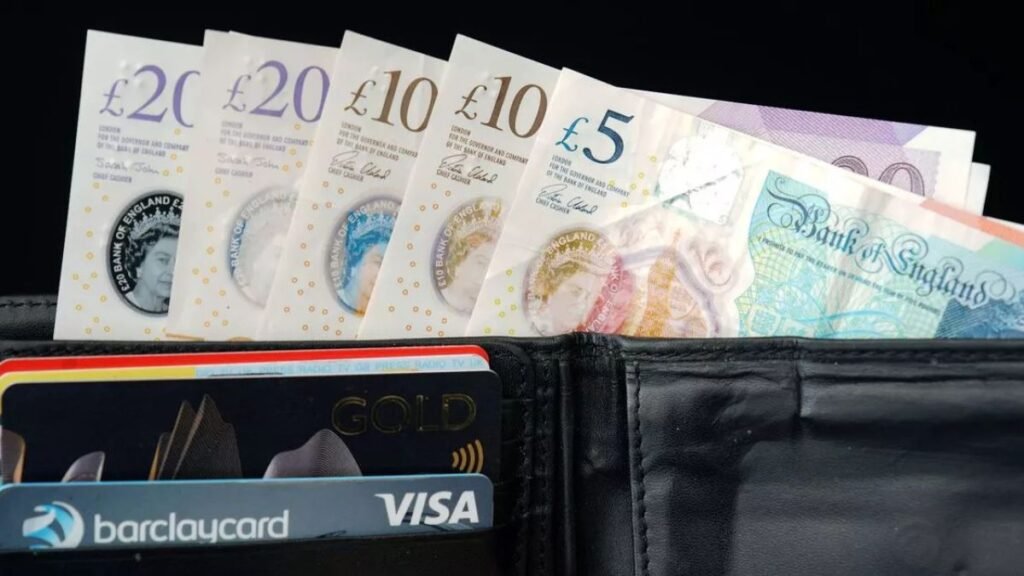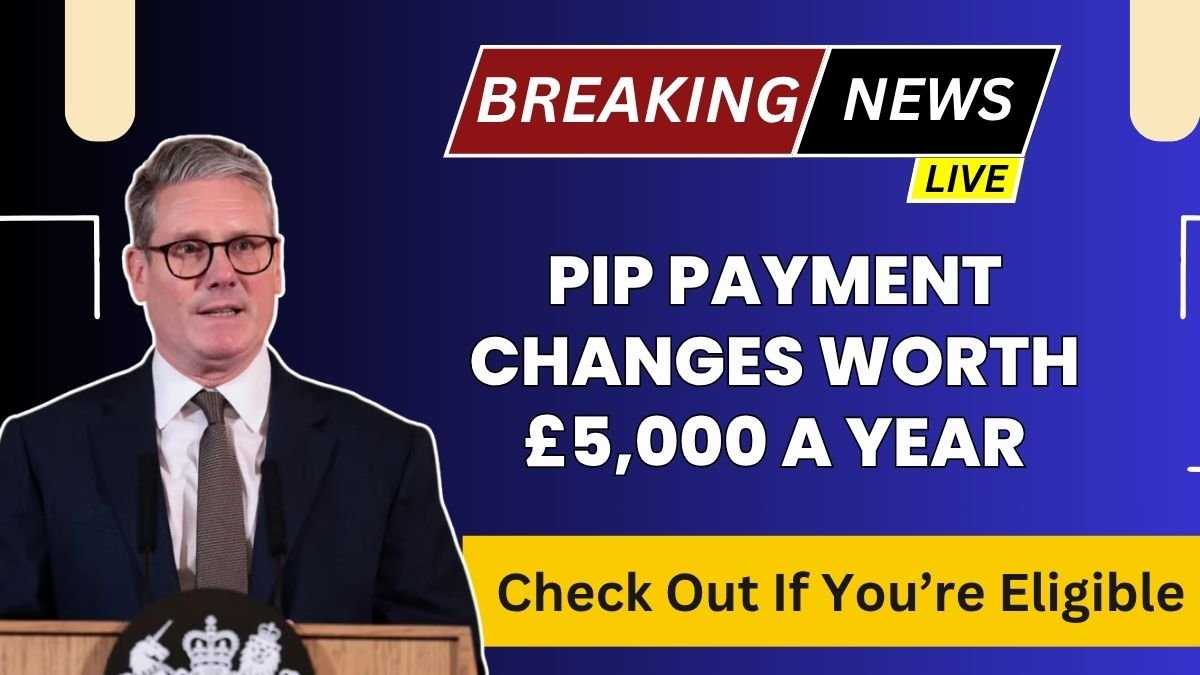If you currently receive Personal Independence Payment (PIP)—or you’ve applied for it in the past—you might’ve heard the growing buzz around a potential back payment of up to £5,000. Sounds like a dream, right? But is it real? And if it is, how do you know whether you qualify?
Let’s break down exactly what’s happening with these PIP back payments, what caused them, who could benefit, and most importantly—what steps you need to take to make sure you’re not missing out on money that could be rightfully yours.
Why Are These Back Payments Happening?
This all comes down to a major shift in how the Department for Work and Pensions (DWP) assesses the need for social support in PIP claims.
In the past, many people who needed help engaging with others—especially in face-to-face situations—were overlooked during the assessment process. The DWP assessors often didn’t award extra points unless you had formal support in place, like a paid carer or therapist. But many people rely on informal support from friends or family, which wasn’t being considered properly.
Following a court ruling and policy update, the DWP now recognizes that people who struggle with social interaction—due to conditions like anxiety, autism, depression, PTSD, or cognitive impairments—can qualify for higher PIP payments, even if their support comes from someone unpaid.
What Exactly Changed in the Rules?

Before 2024, PIP assessments didn’t always count difficulties with social interactions unless the help was “supervised” or by a professional. Now, if you regularly need someone to help you deal with public transport, attend appointments, talk to people, or even just manage stressful daily situations, that support counts.
And this isn’t just about future payments—it’s also retroactive.
That means if your claim was assessed unfairly under the old rules, you might be eligible for a back payment. In some cases, people have already received lump sums ranging from a few hundred pounds up to more than £5,000.
Real-Life Example: Meet Sarah
Sarah is 49 and lives in Birmingham. She suffers from severe social anxiety and depression, which makes leaving the house very difficult. Her daughter often goes with her to doctor’s appointments and even does the talking for her when they’re out in public.
Sarah was awarded the standard rate of the daily living component of PIP. But after the 2024 changes, she reviewed her award and submitted extra evidence—letters from her GP and a short written statement from her daughter.
As a result, she was re-assessed and upgraded to the enhanced rate. She also received a back payment of over £4,000, covering the months where she should’ve been on the higher rate.
Her weekly payment also increased, giving her some much-needed financial breathing room.
Could You Be Eligible for a Back Payment?
Here are some signs that you might qualify under the new rules:
- You currently receive PIP but think your support needs weren’t properly considered
- You were denied the enhanced daily living component even though you regularly need help with people-facing situations
- Your condition affects your ability to engage socially or communicate, such as anxiety, PTSD, autism, schizophrenia, or brain injury
- Someone—formally or informally—helps you engage with others in your daily life
And remember, you don’t need a professional carer. A friend, partner, or family member who helps you regularly also qualifies as support.
How to Check If You Might Be Owed Money

- Look at Your Award Letter
Review the points you were given for the “Daily Living” section, especially the descriptor related to “engaging with others face-to-face.” If you were given zero or only a couple of points here, you might have a case. - Think About Your Daily Struggles
Do you avoid social situations? Need someone to go with you to the GP? Can’t manage public transport without help? These are all examples of unmet support needs. - Gather Evidence
You’ll need to show the DWP how your condition affects your social interactions. This could include:- A letter from your GP or therapist
- Notes or statements from the person who helps you
- Medication history for mental health conditions
- Examples of missed appointments or panic attacks
What Steps Should You Take?
If you think you’ve been affected by the rule change, don’t wait. Here’s how you can move forward:
- Contact the DWP
Call the PIP enquiry line and ask for a review of your award in light of the 2024 social support policy changes. - Submit Supporting Documents
Even if you’ve already submitted some evidence before, send updated or new statements showing how your condition affects your day-to-day life. - Request a Mandatory Reconsideration
If your claim was denied or you received the lower rate and think that was wrong, ask for a review. You usually have one month from the decision, but late requests can sometimes be accepted. - Take It to Tribunal
If your Mandatory Reconsideration is denied, you can appeal to an independent tribunal. Many people win these appeals, especially with help from a welfare adviser or support service.
Extra Help That Comes with PIP
Getting PIP isn’t just about the monthly payment. It can also open doors to other kinds of financial support:
- Council Tax Reduction – Many councils offer discounts to PIP recipients
- Free or Discounted Travel Passes – Local authorities may offer bus or rail concessions
- The Blue Badge Scheme – For parking near shops and medical facilities
- Access to Warm Home Discount – A one-time payment to help with winter heating costs
- Universal Credit Premiums – Extra payments if you receive both PIP and Universal Credit
Conclusion
Thousands of people across the UK could be owed money they never knew they were entitled to—all because of how social support needs were misunderstood or ignored in the past.
If you or someone you know struggles with social interaction due to a mental or cognitive health condition, and help from others is a regular part of life, it’s worth checking your PIP award. This isn’t about trying to game the system—it’s about getting the support you genuinely need and deserve.
A simple phone call or piece of evidence could unlock a significant back payment and higher ongoing support. Don’t miss out—take action today.
FAQs
1. What is PIP?
PIP stands for Personal Independence Payment. It is a UK government benefit that helps people aged 16 to State Pension age with the extra costs of long-term disability or health conditions.
2. What are the new PIP payment changes in 2025?
The government is considering reforming the PIP system, and some proposed changes could result in eligible individuals receiving up to £5,000 more annually through increased support or adjusted eligibility rules.
3. When will the new payment changes take effect?
The changes are proposed and may be implemented by late 2025 or 2026, depending on parliamentary approval and final policy decisions.
4. How much is £5,000 a year in weekly or monthly terms?
A yearly increase of £5,000 equals approximately £416 per month or £96 per week in additional support if evenly distributed.
5. Will everyone on PIP get this increase?
No. The increase depends on individual circumstances and government reform outcomes. It may apply to specific groups with more complex or severe conditions.


